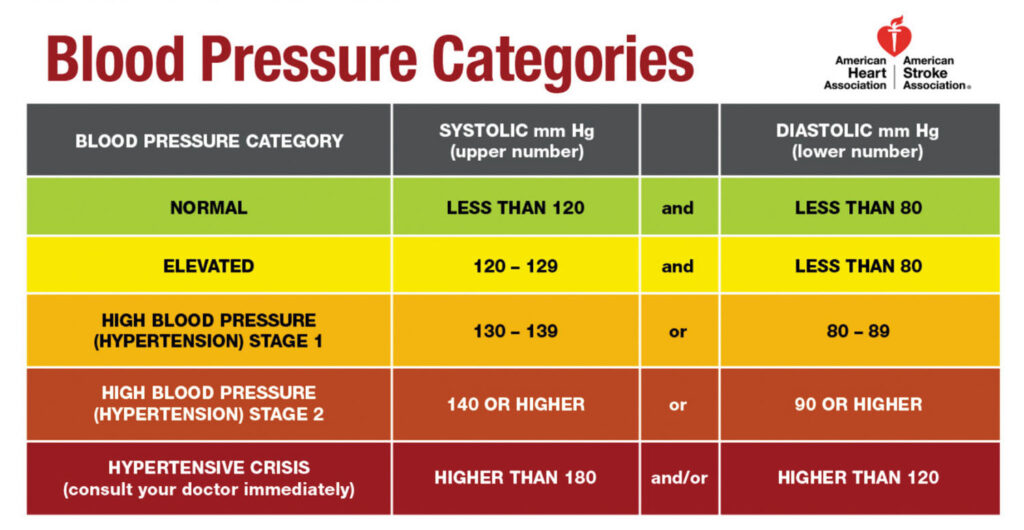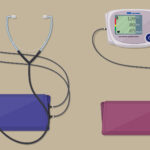According to the American Heart Association (AHA), understanding blood pressure readings is crucial for managing hypertension. AHA regularly publish blood pressure explanation, the most recent one presents the basics that everyone needs to know. Patients and doctors measure blood pressure using two numbers. The systolic pressure, which represents the force when the heart beats, and diastolic pressure, which represents the force when the heart is at rest. The ideal blood pressure reading is around 120/80 mmHg.
High blood pressure, or hypertension, is a condition where the force of blood against the artery walls is consistently too high. It can lead to serious health problems such as heart disease, stroke, and kidney disease. Hypotension, on the other hand, is when blood pressure is consistently too low, which can cause dizziness, fainting, and fatigue.
Maintaining a healthy lifestyle is key to managing blood pressure. This includes regular exercise, a balanced diet low in sodium and high in fruits and vegetables, maintaining a healthy weight, limiting alcohol consumption, and avoiding tobacco use.
Regular blood pressure check-ups are important, especially for individuals with a family history of hypertension or other risk factors. Monitoring blood pressure at home using a reliable blood pressure monitor can also provide valuable information for healthcare professionals.
It is essential to work with healthcare providers to develop an individualized treatment plan if blood pressure is consistently high or low. This may involve lifestyle changes, medication, or a combination of both.
Dr. Eduardo Sanchez, Chief Medical Officer for Prevention at the American Heart Association, said:
"Understanding your blood pressure readings and taking steps to manage it can significantly reduce your risk of developing serious health conditions. Regular monitoring, lifestyle modifications, and appropriate medical interventions can make a significant difference in maintaining optimal blood pressure levels."
Blood Pressure Explanation: AHA Scope of Work
The American Heart Association (AHA) plays a crucial role in the fight against heart disease and stroke. Here are some detailed facts about the AHA, highlighting its impact, efforts, and the scope of its work:
- Compilation of Heart and Stroke Statistics. Annually, the AHA collaborates with major health agencies like the Centers for Disease Control and Prevention (CDC) and the National Institutes of Health (NIH) to compile statistics on heart disease, stroke, and other vascular diseases. This compilation, known as the Heart Disease and Stroke Statistical Update, provides comprehensive data on disease morbidity, mortality, risks, quality of care, medical procedures, operations, and costs associated with managing these diseases.
- Advocacy and Systems Change. The AHA is active in advocating for systems change to combat cardiovascular disease, which causes 17 million deaths worldwide every year. Part of their advocacy includes challenging the tobacco industry. The AHA’s Tobacco Endgame strategy is particularly focused on ending the harmful impact of flavored tobacco products.
- The No Surprises Act. The AHA played a pivotal role in advocating for the No Surprises Act, which protects patients from unexpected bills for out-of-network medical care.
Other AHA Priorities
- Extensive Research and Education Programs. The AHA offers a wide range of research and education programs, covering various aspects of cardiovascular health and diseases. These include topics like acute coronary syndromes, arteriosclerosis, thrombosis, vascular biology, hypertension, and many more. The AHA also provides guidelines, statements, and educational resources for professionals, which are essential for maintaining high standards of care and advancing knowledge in the field of cardiology.
- Diverse Communities and International Reach. The AHA commits to addressing health inequities and promoting cardiovascular health globally. This commitment targets diverse communities focused on specific areas. These include cardiometabolic health, diabetes, women and special populations, and its international programs. The AHA also emphasizes equitable health for all, with initiatives like the Bernard J. Tyson Impact Fund and the Office of Health Equity, which work towards removing barriers to healthcare access and quality.






